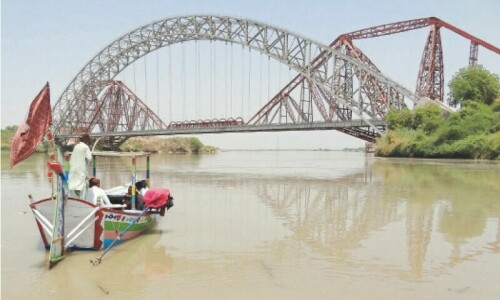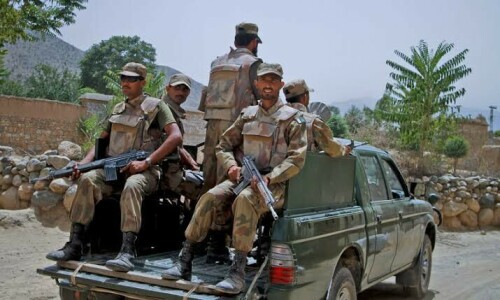Cabinet turns down ECC decision, says 'no trade with India' until autonomy returned to IOK

The federal cabinet on Thursday deferred the Economic Coordination Committee's (ECC) decision to allow the import of sugar, cotton and cotton yarn from India through land and sea routes.
The decision has been deferred until India reinstates Article 370 of its Constitution, which guaranteed a semi-autonomous status for Indian-occupied Kashmir. Pakistan had suspended all bilateral trade with Indian following New Delhi's decision to revoke Article 370 in August 2019.
"Today Cabinet stated clearly NO trade with India," Minister for Human Rights Shireen Mazari tweeted.
She said Prime Minister Imran Khan had made it clear that "there can be no normalisation of relations with India until they reverse their illegal actions" regarding occupied Kashmir taken on Aug 5, 2019.
Speaking to Geo News, Foreign Minister Shah Mehmood Qureshi also said the cabinet had ruled that "normalising relations with India will not be possible" until it overturned the measures it took regarding occupied Kashmir's special status.
"A perception was emerging that relations with India have moved towards normalisation and trade has been opened," Qureshi said. "There was an exchange of thoughts on this and there was a unanimous opinion on this and it was the prime minister's [opinion] as well that as long as India does not review the unilateral steps it took on August 5, 2019, normalising relations with India will not be possible."
Newly appointed Finance Minister Hammad Azhar, who had announced the ECC decision to allow sugar and cotton imports from India on Wednesday, said it was routine for the cabinet to approve or reject the committee's proposals.
"The ECC proposes dozens of measures each week to the cabinet and the cabinet and PM routinely endorse, reject or modify some of them," he tweeted. "This is how the economic and political interface in a democracy works."
Earlier today, Mazari too had stated that all ECC decisions "have to be approved by the federal cabinet".
"Only then they can be seen as 'approved by government'," she said, adding that the "media should be aware of this at least".
Addressing a post-cabinet meeting press conference in the evening, Minister for Science and Technology Fawad Chaudhry said decision-making in the government was done on a "very different level", and that the final decision rested with the cabinet.
He said the ECC decision to allow imports of sugar and cotton from India held "the status of a recommendation" for the government and it was not mandatory for the cabinet to approve it.
"So the headlines that were printed that Pakistan has decided to conduct trade with India in textile were not correct. It was an ECC recommendation but the cabinet hasn't taken any such decision," he stressed.
'Not at the cost of Kashmir'
Chaudhry said the Government of Pakistan had a stated position that "until India's occupation of Kashmir and the steps to change its position are reversed, such decisions [regarding trade] will be processed through the filter that the government has determined in this regard."
It is wrong to say that the ECC decision should be considered a government decision, he said, adding that "the government has so far not approved any sort of trade with India."
Talking about the letter written by Indian Prime Minister Narendra Modi to Prime Minister Imran on the occasion of Pakistan Day, the minister said improvement in relations between India and Pakistan would be good for the region and help the economy grow, but that "this progress cannot be at the cost of Kashmir".
He noted that Prime Minister Imran, in his reply to Modi, while talking about peace had also asked India to move toward resolving the Kashmir issue.
"So the stated position of Government of Pakistan and Prime Minister Imran Khan is that the key to peace in South Asia lies in the resolution of the Kashmir issue. And if you (India) want peace, you will have to resolve the Kashmir issue, and in this regard, the first step will be that you revert to the position of August 5," he said.
If India reverses its actions, Chaudhry said, "new avenues of cooperation between Pakistan and India can open up," and such a relationship could prove to be a "gamechanger" for the region.
"But it can't happen that you consider Muslims in India second-class citizens, massacre Muslims, don't give rights to Kashmiris, and we think after all of this, we and India can live in harmony," he added.
According to the minister, Prime Minister Imran during today's meeting "especially reiterated this position".
Azhar had made the ECC decision to restore trade ties with India public on Wednesday, stating that the price of sugar in India is "significantly cheaper than Pakistan; therefore, we have decided to open its trade and allow commercial import of 500,000 tonnes of white sugar”.
The minister had said the decision was taken to improve supplies and discourage price hike in Pakistan as sugar in India was 15pc to 20pc cheaper.
An official statement had said the ECC allowed the commercial import of white sugar from India till June 30, 2021, through land and sea routes, on the basis of the quota issued by the Ministry of Commerce. The decision would be time and cost effective and would also stabilise the prices of sugar in the domestic markets, it had added.
Prime Minister Imran, who is also Minister-in-Charge of Commerce and Textile, had approved the summaries for import of cotton, cotton yarn and sugar to be placed before the ECC for approval. It meant that the prime minister was already in support of lifting the ban on these products' imports from India.
Pricing of Sputnik and CanSino jabs
Talking about the Covid-19 situation in the country and the availability of vaccines, Chaudhry said the government wanted to deal with the ongoing third wave of the virus in the same "organised manner" which it had employed during the first two waves.
The minister said "98 per cent" of Pakistanis will get the Covid-19 vaccine for free which the government will arrange through its own funds and donations. For the 2pc citizens who don't want to wait in the queue, the government had decided to allow private vaccine imports as well, he added.
However, Chaudhry noted that importers who acquired the vaccine from abroad wanted to sell it locally at the price of their choice, which went against Prime Minister Imran's priority that citizens who wanted to purchase the vaccine were not "looted". "So a balanced position has to be created for that," he said.
The minister said of the two vaccines imported in Pakistan so far, there was a dispute over the price of the Russian Sputnik V jab which was currently being heard by the Sindh High Court.
"As soon as [SHC's] final decision is issued, Sputnik's final price will be decided," Chaudhry said, adding that the price of the single-dose Chinese CanSino vaccine had been fixed at Rs4,225 for now.















































